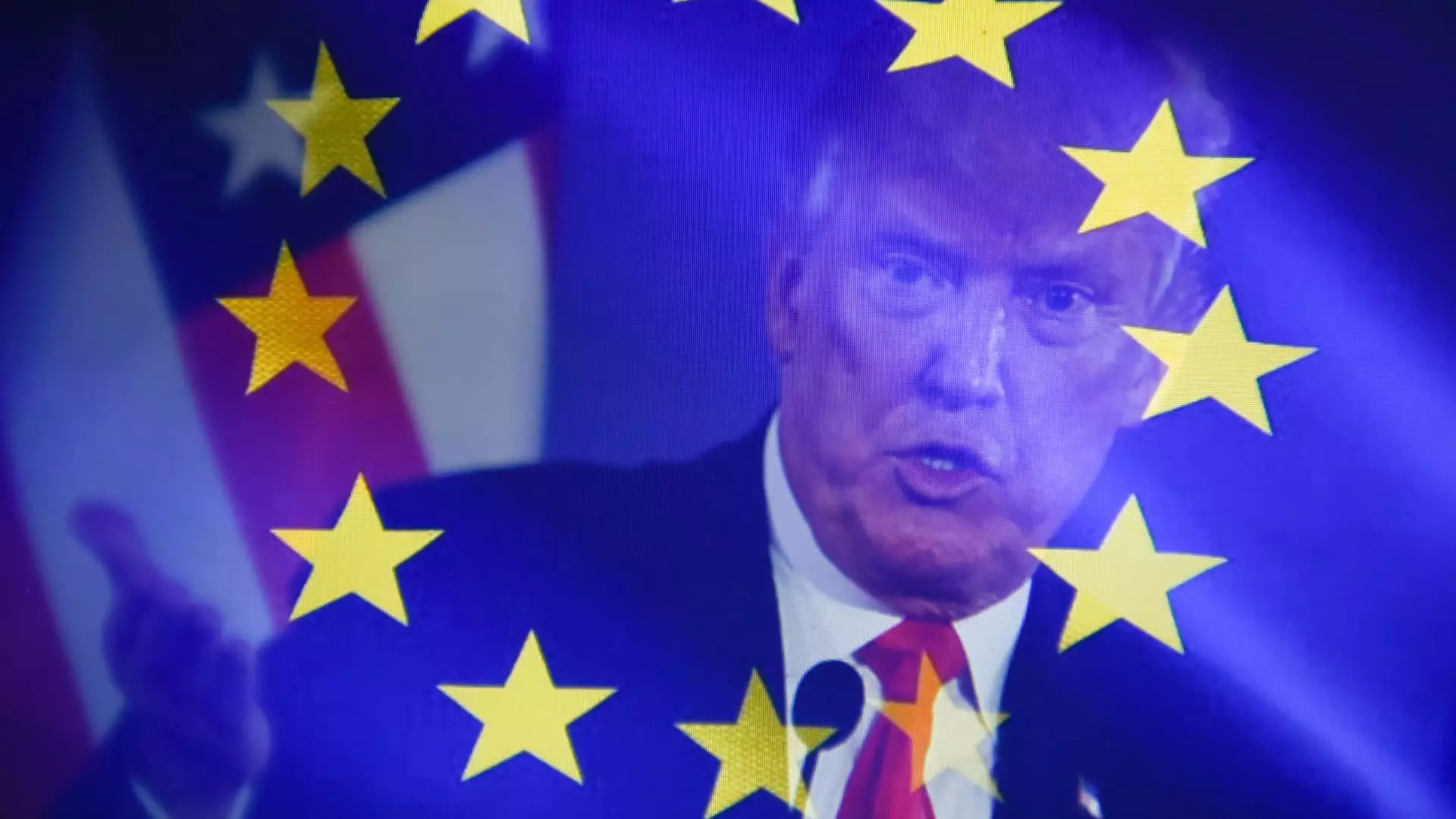The European Union’s decision to delay the implementation of retaliatory tariffs on a broad range of U.S. goods marks a moment of cautious optimism amidst a fraught transatlantic trade relationship. Following a surprising reduction of U.S. tariffs announced by President Trump, European Commission President Ursula von der Leyen expressed the EU’s intent to offer negotiations a fair chance before unleashing countermeasures. This pause, however, is rife with tension and uncertainty.
While the gesture appears diplomatic on the surface, one must question whether this is a genuine step toward resolving trade grievances or merely a temporary lull before further escalation. Tariffs, inherently disruptive, are nothing more than a tax on consumers and businesses alike. They complicate already intricate supply chains and inflate consumer prices, all while doing little to protect the industries they aim to support. The question looms large: is this truce the calm before a more significant storm, or will it lead to constructive dialogue that repairs the relationship between the EU and the U.S.?
Trade Dynamics and Economic Reality
The economic landscape defined by tariffs is anything but simple. The U.S. introduced a staggering 25% tariffs on steel and aluminum, coupled with other extensive trade barriers, which were strikingly retaliated by the EU’s plans to impose similar duties. The EU’s proposed list of targeted products is still shrouded in mystery, yet the idea of retaliatory measures traverses the ground of economic retaliation that benefits no one. As von der Leyen rightly pointed out, these tariffs only siphon resources and opportunities, benefitting few while harming many.
Trump’s temporary reprieve from previously announced tariffs has undoubtedly favored investors, sending the U.S. stock market soaring in the aftermath. Yet, this economic buoyancy seems specious when considered against the larger backdrop of trade warfare that threatens the stability of global markets. Stock market reactions rarely reflect the long-term implications of tariff policies; they represent short-term gains that can evaporate if the underlying issues are not thoughtfully addressed.
Challenges to Cooperation
Amidst these escalating trade tensions, it is essential to recognize the broader context in which they unfold. The relationship between the EU and U.S. has been strained for much of the past year, prompted not just by trade imbalances, but also by shifting geopolitical paradigms. Trump’s hostile rhetoric portraying the EU as an unfair trade partner has exacerbated an already fragile dialogue, creating an environment that complicates diplomatic negotiations.
The EU’s response focuses on diversifying trade relationships and reducing internal friction by strengthening its single market. This pivot is significant, indicating a strategic recalibration in how Europe engages with global trade. Viewed through a liberal lens, this repositioning reflects an understanding that reliance on a single partner for economic growth can be precarious. The pursuit of diverse trade partnerships not only cushions the impact of adversarial tariffs but also promotes a more balanced global economic system.
Hope for Constructive Dialogues
The temporary suspension of retaliation from the EU and the U.S. signals a potential opening for dialogue that could lead to a more meaningful trade agreement. Von der Leyen’s call for a “zero-for-zero tariff” agreement resonates as an idealistic yet necessary pursuit. A trade relationship anchored in mutual benefit, devoid of punitive tariffs, speaks to a pragmatic approach to international relations in an increasingly interdependent world.
However, history warns us against overly optimistic expectations. Negotiation is an art often thwarted by stubbornness and entrenched interests. The question remains whether both parties can transcend their historical grievances and navigate this precarious terrain toward a shared vision of economic collaboration. The effectiveness of this truce ultimately depends on the sincerity and commitment both sides demonstrate in fostering a constructive dialogue that prioritizes mutual prosperity over retaliatory posturing.
In these complex times, the fragility of international trade negotiations serves as a reminder of the delicate balance needed to maintain productive relations. While tariffs may be paused, their repercussions linger, ready to ignite conflict once again. The hope lies in consistent engagement characterized by respect and understanding—an endeavor that, while challenging, is imperative to avoid the treacherous path of trade warfare.

